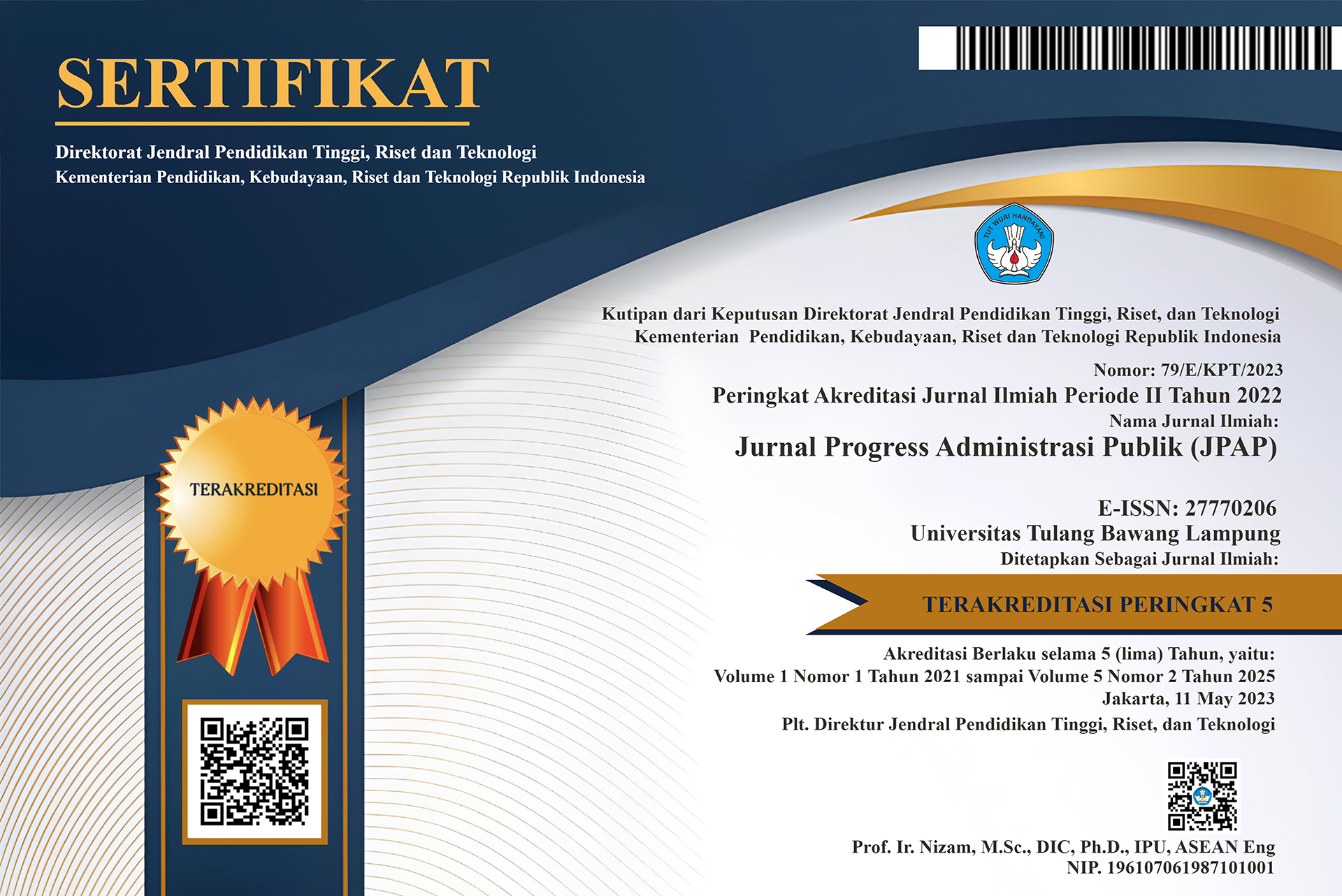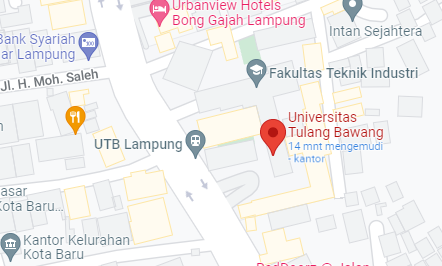EVALUASI KEBIJAKAN PENGADAAN TANAH DI KABUPATEN BANDUNG
(Studi Kasus Pada Proyek Pembangunan Kereta Cepat Jakarta-Bandung)
DOI:
https://doi.org/10.37090/jpap.v4i1.1200Abstract
This research aims to evaluate the success of land procurement policies in the Jakarta-Bandung High-Speed Railway Development Project carried out by the Land Office of Bandung Regency. The method employed is a qualitative approach using a descriptive method that delineates specific circumstances from the emerging facts during the research process without altering the observed phenomena. The evaluation encompasses several indicators, including Inputs, processes, Outputs, and outcomes. Several issues identified include suboptimal planning, constraints in land relocation, land acquisition methods following a Business to Business (B to B) pattern, community dissatisfaction, delayed land payments, land measurement errors, insufficient comprehensive socialization, and inadequate coordination in addressing on-site issues. The research findings indicate that the implementation of Land Procurement Policies for the Jakarta-Bandung High-Speed Railway Development Project by the Land Office of Bandung Regency has yielded moderately satisfying results across most indicators. However, shortcomings exist in slow and unclear information dissemination to the public, low intensity in policy socialization influenced by third parties directly engaging the community, coordination and authority overlap issues between policy implementers and project executors, challenges in facility relocation, emerging land disputes, and additional land route adjustments beyond the initial planning requiring further attention. Hence, it is recommended to enhance information distribution and broader, more intensive policy socialization, improve coordination and collaboration with relevant parties, implement structured dispute resolution, and enhance precision in reviewing planning documents.
Keywords: Policy Evaluation; Land Procurement; High-Speed Railway.
Downloads
References
Arikunto, S. (2008). Manajemen Pendidikan. Yogyakarta: Aditya Media.
Gunanegara. (2008). Rakyat dan Negara dalam Pengadaan Tanah Untuk Pembangunan. Jakarta: PT Nusa Tata.
Harsono, B. (2007). Sejarah Pembentukan Undang-Undang Pokok Agraria, Isi Dan Pelaksanaannya (Cet 8). Jakarta: Djambatan.
Muchsin, M., & Putra, F. (2002). Hukum dan Kebijakan Publik (Analisis atas Praktek Hukum dan Kebijakan Publik dalam Pembangunan Sektor Perekonomian Indonesia). Malang: Universitas Sunan Giri Surabaya bekerjasama dengan Averroes Press.
Nugroho, F., Anis, A., & Sapto, K. (2014). Panduan Praktis Penelitian Kualitatif. Yogyakarta: Graha Ilmu.
Sarosa, S. (2012). Penelitian Kualitatif: Dasar-Dasar. Jakarta: Permata Puri Media.
Sugiyono. (2012). Metode Penelitian Bisnis. Bandung: Alfabeta.
Sulaeman, A. (2010). Pembebasan Tanah Untuk Kepentingan Umum. Jakarta: Jala Permata Aksara.
Umar, H. (2002). Metode Riset Komunikasi Organisasi. Jakarta: Gramedia Pusaka Utama.
Uzer, M. U. (2003). Strategi Pembelajaran. Jakarta: Erlangga.
Wibawa, S. (2011). Pengantar Analisis Kebijakan Publik. Yogyakarta: Graha Ilmu.
Winarno, B. (2017). Kebijakan Publik Teori, Proses, dan Studi Kasus. Yogyakarta: CAPS.
(__________). (2008). Teori Kebijaksanaan Publik. Yogyakarta: Pusat Antar Universitas Studi Sosial, Universitas Gajah Mada.
Undang-undang Dasar Negara Republik Indonesia Tahun 1945.
Undang-Undang Nomor 5 Tahun 1960 tentang Peraturan Dasar Pokok- Pokok Agraria
Undang-Undang Republik Indonesia Nomor 2 Tahun 2012 tentang Pengadaan Tanah Bagi Pembangunan Untuk Kepentingan Umum
Peraturan Presiden Republik Indonesia Nomor 71 Tahun 2012 tentang Penyelenggaraan Pengadaan Tanah Bagi Pembangunan Untuk Kepentingan Umum
Peraturan Kepala Badan Pertanahan Nasional Nomor 5 Tahun 2012 tentang Petunjuk Teknis Pelaksanaan Pengadaan Tanah
Downloads
Published
How to Cite
Issue
Section
License
Copyright (c) 2024 Jurnal Progress Administrasi Publik (JPAP)

This work is licensed under a Creative Commons Attribution-ShareAlike 4.0 International License.






















